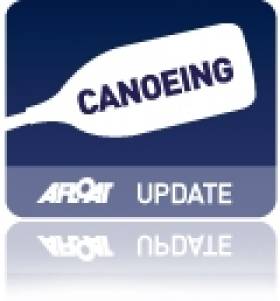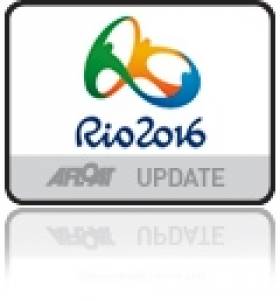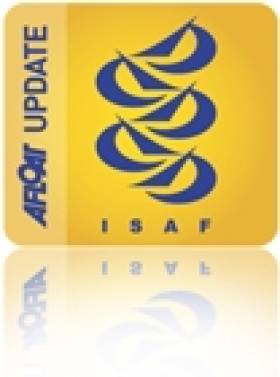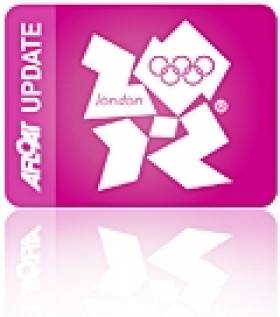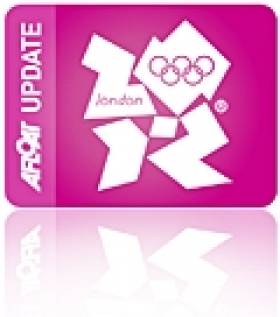Displaying items by tag: Paralympics
Canoeing Ireland Sets Off On Road To Rio Paralympics
#Canoeing - With para-canoeing set to join the list of sports at the Rio Paralympics in 2016, Canoeing Ireland says it is keen to develop the sport and identify and support athletes with hopes of representing Ireland.
That was the message from Canoeing Ireland's Olympic Sprint chairman Eamon Fleming, who was on hand to thank Paralympics Ireland for accepting Canoeing Ireland into the Paralympics family at an event last week.
"We are very excited to be a part of the Paralympics family and see great potential in growing para-canoeing in the future," he said.
According to Fleming, he and Ireland's canoe sports governing body "were inspired to see para-canoeist Patrick O'Leary finished second in the men's 200m event in very tough conditions" at the first sprint regatta of the year in Nottingham last weekend.
Also now paddling his own canoe for Rio is two-time rowing Paralympian Kevin Du Toit, who is currently training out of Richmond Canoe Club in London – a home away from home for Irish paddlers over the years.
Karl Dunne, CEO of Canoeing Ireland, said: "We are delighted to have had instant success with Patrick's result in Nottingham, He will now compete at the European Championships in Portugal this summer.
"Canoeing Ireland look forward to working with Liam and his team on the road to Rio."
Arise Sir Ben! British Olympic Sailor Knighted in New Year Honours
#Honours - British Olympic sailing hero Ben Ainslie has finished out his record-breaking year with a knighthood in the New Year Honours list.
The most decorated Olympic sailor of all time claimed his fourth straight gold – and fifth Olympic medal in total – on the waters of Weymouth and Portland this summer in what was a fitting curtain call to a stellar 16-year Olympic career.
“This is an incredible honour,” the 35-year-old Ainslie told the Royal Yachting Association. “When I set out Olympic sailing 20 years ago, I never would have dreamt this would happen.
“I couldn't have achieved this honour without the support of all the people who have helped me throughout my career and so I hope they can also take some pride in this moment.”
Last month Ainslie announced his retirement from Olympic sailing in order to focus on his America’s Cup ambitions. His announcement came just weeks after he was named the male winner of the 2012 ISAF Rolex World Sailor of the Year Award at the Mansion House in Dublin.
In other honours, David ‘Sid’ Howlett - who coached Ben Ainslie to his record-breaking fourth Olympic gold and sixth Finn World Championship title this summer - was made a Member of the Order of the British Empire (MBE) for his services to British sailing since 1988.
And Helena Lucas, who became the first Paralympic gold medallist for sailing as the only female among an otherwise all-male fleet in the 2.4mR class, was also awarded an MBE.
“It's a real honour and a fantastic end to an amazing year!” she said. “It was totally unexpected as there have been so many outstanding sporting achievements this year!”
Beyond the Olympics and Paralympics, there was also recognition for Malcolm Torry, who was awarded the British Empire Medal (BEM) for services to sailing and to people with disabilities for his work through Carsington Sailability in Derbyshire.
RYA chief executive Sarah Treseder commented: “We are all absolutely thrilled for sailing’s award recipients, who have all made major contributions either to the RYA community, or the sport of sailing and its successes on the world stage across so many years.
“They are such great ambassadors for our sport, and we’re delighted and so proud that their hard work and achievements have been recognised after the sporting success story that 2012 has been for the country.”
Kinsale Paralympian Leads World Disabled Sailing Body
#paralympics – Ten time paralympic sailor John Twomey is the new President of the International Association for Disabled Sailing (IFDS).
John was elected at the International Sailing Federation (ISAF) Annual Conference in Dun Laoghaire, Co. Dublin at the weekend. international The honour comes two months after John competed at his 10th Paralympics in Weymouth, a record for any Irish person competing at either the Olympics or Paralympics.
John will serve a four year term as head of the organisation responsible for sailing for people with disabilities worldwide.
Twomey and Crew End Paralympic Regatta in 11th Place
#paralympics – There was disappointment for John Twomey and his crew today when the final day of racing for the Sonar class at the Paralympic Games had to be cancelled today due to the lack of wind, an issue which has plagued this regatta all week. Twomey, Anthony Hegarty and Ian Costello finished 11th overall. Although they were well off the medals Twomey from Kinsale made the history books by competing in his 10th Paralympics, a record for any Irish person competing at either the Olympics or Paralympics.
Irish Paralympic Sailing Trio Lying Ninth
#paralympic – Irish paralympic sailing trio John Twomey, Anthony Hegarty and Ian Costello, placed 11th and 7th in the three-person Sonar keelboat class in the first races of the Paralympic games in Weymouth today. They finish Day 1 in 9th overall with a further nine races left to sail.
Taking place from 1 September to 6 September, three gold medals will be up for grabs by the 80 competitors: in the Single-Person Keelboat, Two-Person Keelboat and Three-Person Keelboat. Athletes will compete to master the ever-changing conditions on the open waters of Weymouth Bay and Portland Harbour during the Paralympic Sailing competition.
Ireland is only conrtesting the three person keelboat medal.
The athletes are classified based on their ability to perform the sport using a point system: the higher the points, the greater the ability.
A moderate south westerly breeze saw the team get off to a solid start in Race 1. They began in the middle of the fleet but slipped back to 13th only to climb back up the fleet to 10th but ultimately finishing in 11th. Race 2 saw team back in 13th rounding the first mark but they fought hard challenging their opponents to claim six places to finish in 7th.
John Twomey commented "It was very shifty conditions especially in Race 1. It's early days and we're hoping to improve on our performance today".
The 2012 Paralympics are John Twomey's 10th Paralympics, a record for any Irish person competing at either the Olympics or Paralympics. Having competed initially in the discus where he won bronze in 1984 and gold at Seoul 1988, John progressed to table tennis and finally to sailing which has been his sport of choice since 1996. Anthony Hegarty has been involved in sailing since 2005 but this is his first time competing at the Games. This is also Ian Costello's Paralympic debut.


























